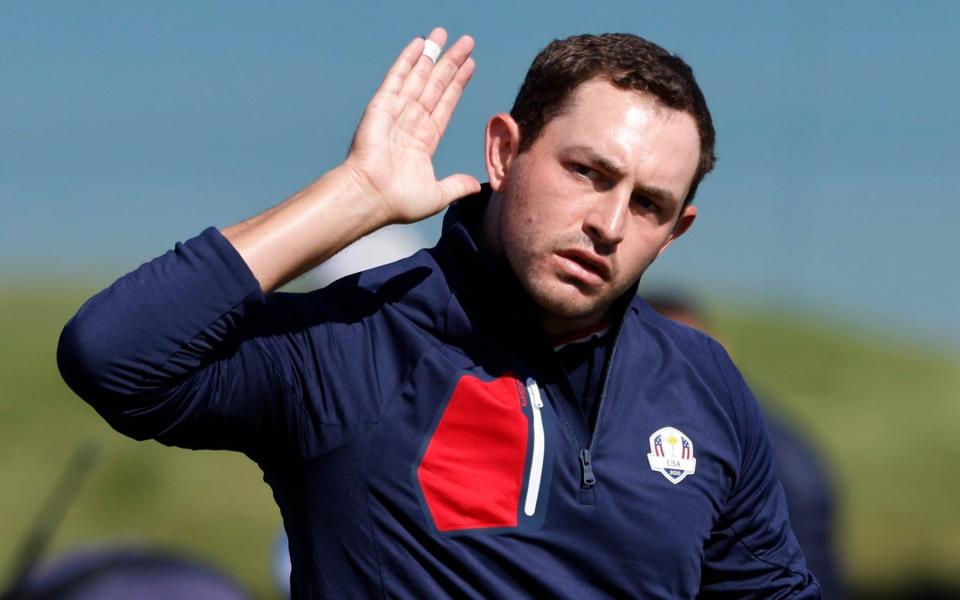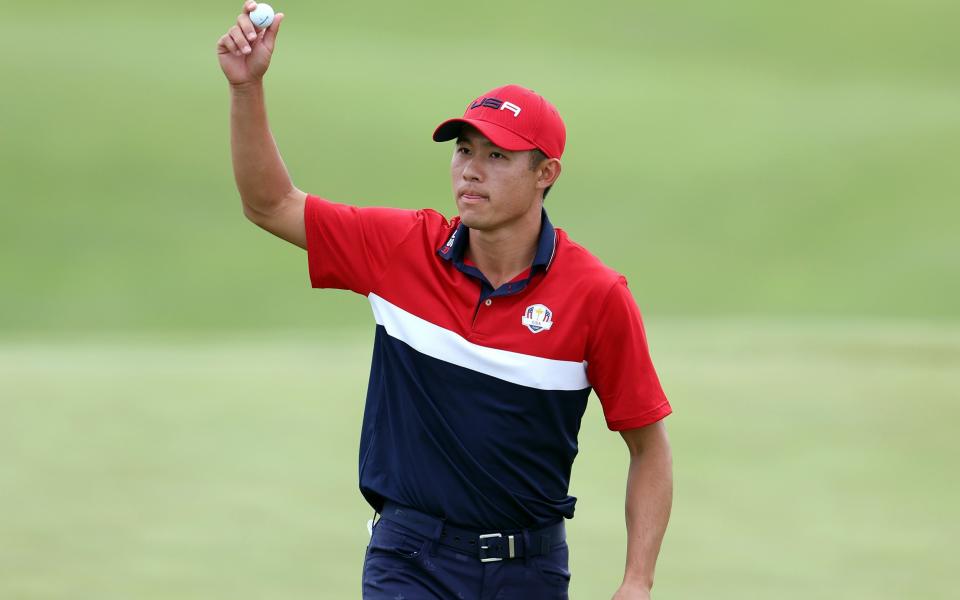Europe beware - USA's golden generation looks ready to dominate Ryder Cup for years to come

Patrick Cantlay had a cold look in his eye as he marched off the third green, having made a nerveless birdie. Bryson DeChambeau may bring the stardust, but Cantlay has represented the icy heart of this American team. Efficient, remorseless and utterly in control.
Afterwards, Cantlay revealed that he had made a speech to his comrades before the first tee shot. “I woke up this morning and told the guys, let's get to 20 points. Because this is gonna be the next era of guys for the US. I wanted to send a message."
Sometimes, sports teams just do what they are supposed to do. The South African “bomb squad” detonated the Lions in the summer’s big rugby series. Now the American bombers have used their extra length off the tea to bully a pallid European team. We can’t say we weren’t warned.
But if we stop for a minute to look beyond the waste bunkers and manmade dunes of Whistling Straits, this week has an ominous feeling. Everyone knows that Europe have outpunched all expectations in the Ryder Cup for the past 35 years. Maybe, like Anthony Joshua, they have finally been found out.
The big hope was that the old American aversion to teamwork would cancel out their greater firepower. But there has been little sign of disunity in the home camp. Instead we have seen Justin Thomas and Daniel Berger slamming beers together on the first tee, while DeChambeau chest-bumped his old Texan pal Scottie Scheffler on the 16th.
Perhaps the absence of the two giants of American golf – Tiger Woods and Phil Mickelson – has helped the team to gel. Neither man is renowned for his collaborative instincts, after all, even if Mickelson is in Wisconsin this week as a vice-captain. And the fact that Team USA is playing without either of these grandees for the first time since 1993 may be relevant to the buoyant home mood.
The only exception to the rule of American cohesion has been Brooks Koepka, spitting disconsolately into the undergrowth after almost every shot, and sulking around the course like a surly teenager on an unwanted school trip. For a senior player of Koepka’s standing, the most decorated home player with four major titles, this was disappointing. Still, the Americans could afford one loner in an otherwise tight-knit pack.
In the broader context, the really alarming thing is the respective vintages of the two teams. Europe tried and failed to eke a couple of extra points out of Lee Westwood and Ian Poulter, who arrived with a combined age of 93. Padraig Harrington’s selection policy reflected a lack of dynamic young talents, even if 24-year-old Norwegian Viktor Hovland has shown glimpses of promise.
On the other side of the pond, meanwhile, this is the youngest American team to step out since the very first Ryder Cup in 1927. Their six rookies include 24-year-old Collin Morikawa, the only player ever to win two majors on his first appearance, who demonstrated his class with three comfortable wins over the first two days. And yet such was the frictionless ease of Morikawa’s progress that the focus tended to stray towards two slightly older men – 27 year-old Xander Schauffele and 29-year-old Cantlay – as they teamed up to devastating effect.

These men have serious pedigree. Cantlay was the world’s best amateur for a record 55 weeks, and the standout member of the famous “Class of 2011” – a super-talented group of college golfers which also included Schauffele, Thomas and Jordan Spieth. It took a lingering back injury, and the tragic death of his caddie and close friend Chris Roth, to hold Cantlay back for the best part of a decade. Now that he has finally arrived, he could be the hard man at the centre of this team for years to come.
“We have a lot of young guys and I think they are going to be on the team for a long time,” said Cantlay. “We sent out rookies maybe four out of the first five matches. I mean, that's unheard of and those guys are performing. Everybody gets along. The atmosphere is light but I know everyone has that killer instinct and we are going to bring that to future Cups.”
In Rome two years hence, the home team will throw plenty of nasty rough around the 300-yard mark – the spot where the Americans love to land their drives – and water the greens until they are marshland. Life will surely be harder for the golden generation. But they have shown enormous versatility here, from Spieth’s extraordinary touch around the greens to DeChambeau’s record-breaking drives. It will be impossible to muzzle them all.
Cantlay, again, epitomises what this victory means. Normally impassive, he has been fist-pumping his way around the course, surprising himself with his own intensity. And here is the wider concern for European golf. Team USA has ripped off its Ryder Cup bonds this week like Gulliver escaping the Lilliputians. Only now are these phenomenal players realising what they might be capable of.

 Yahoo Sport
Yahoo Sport 





































